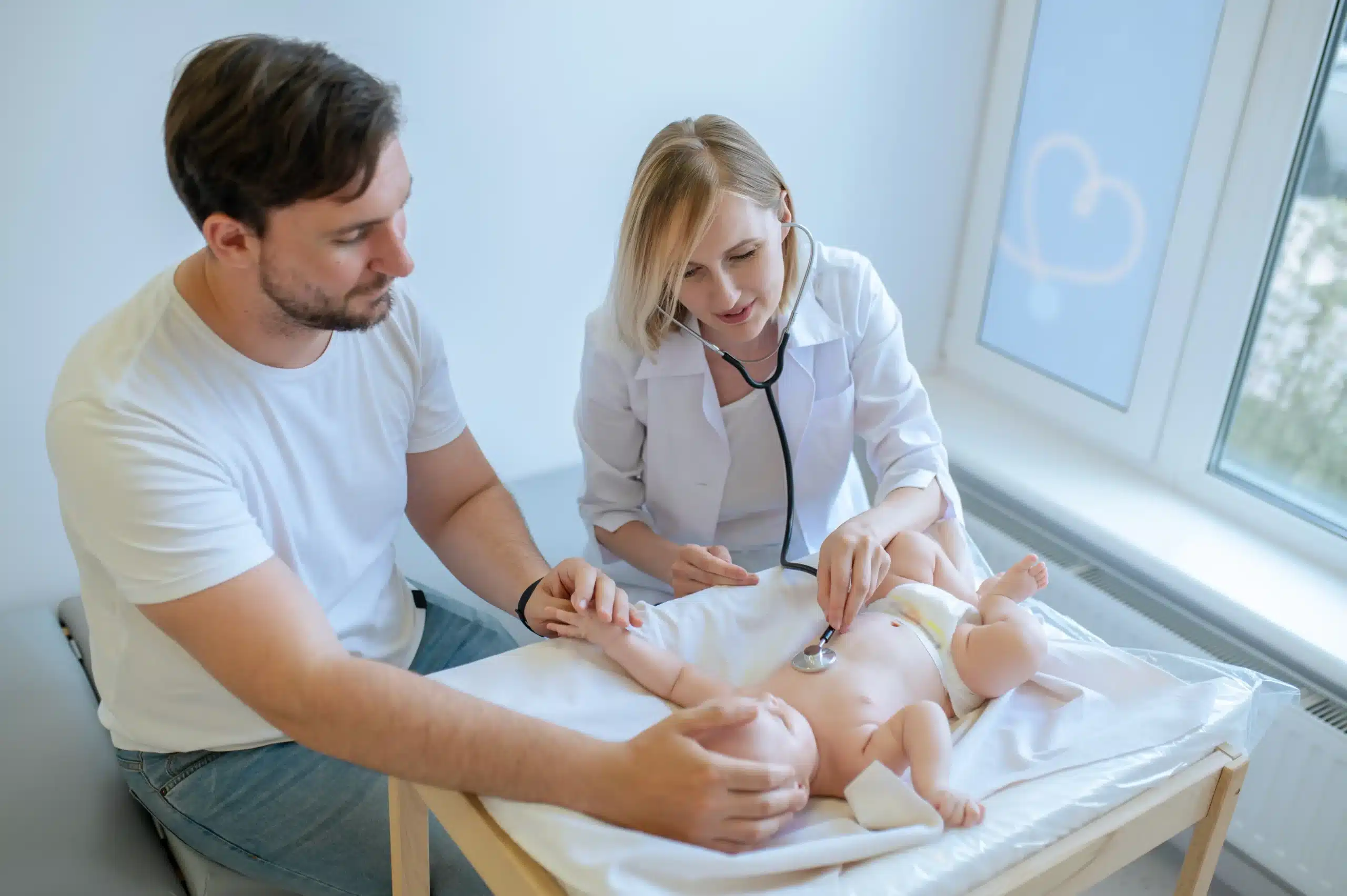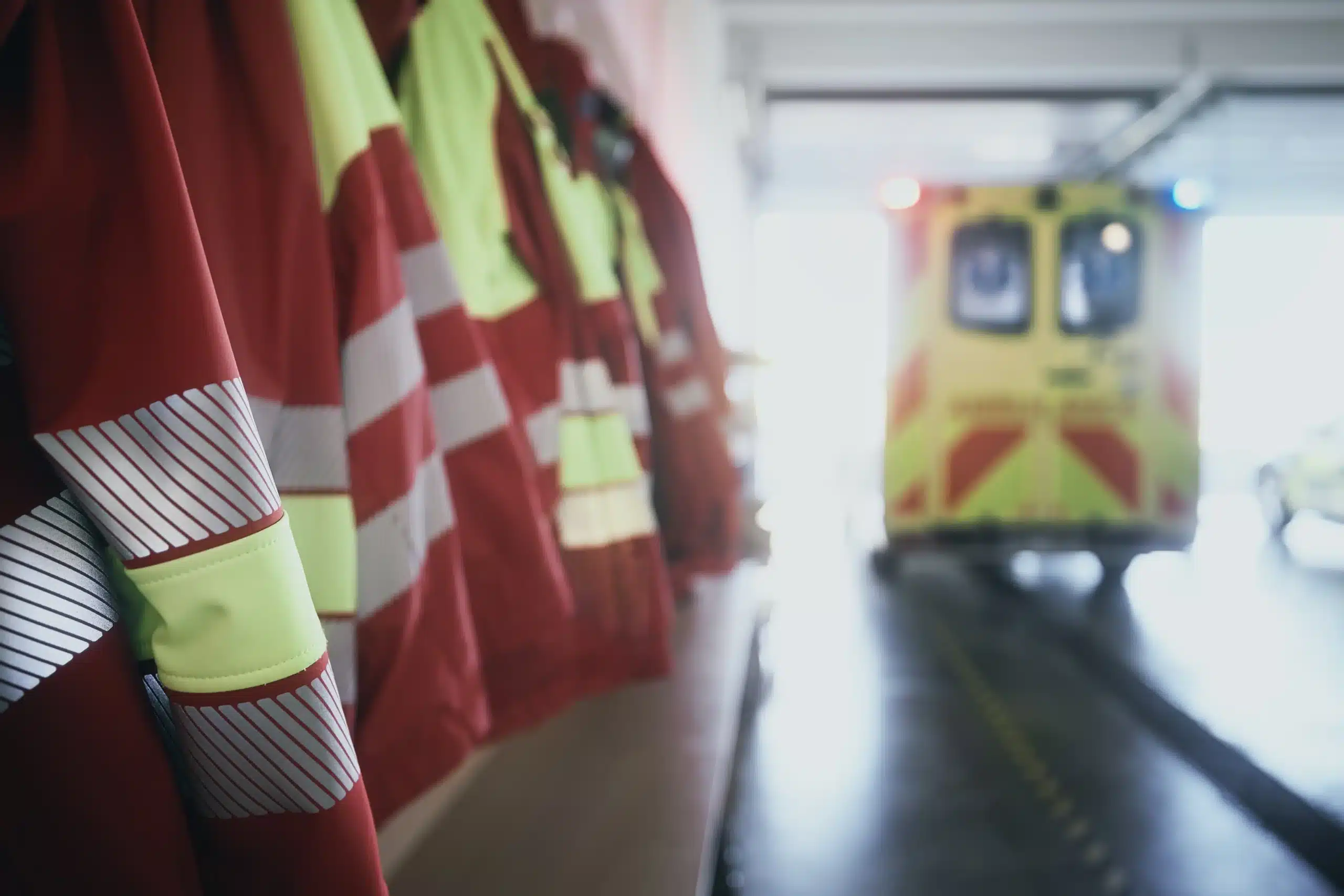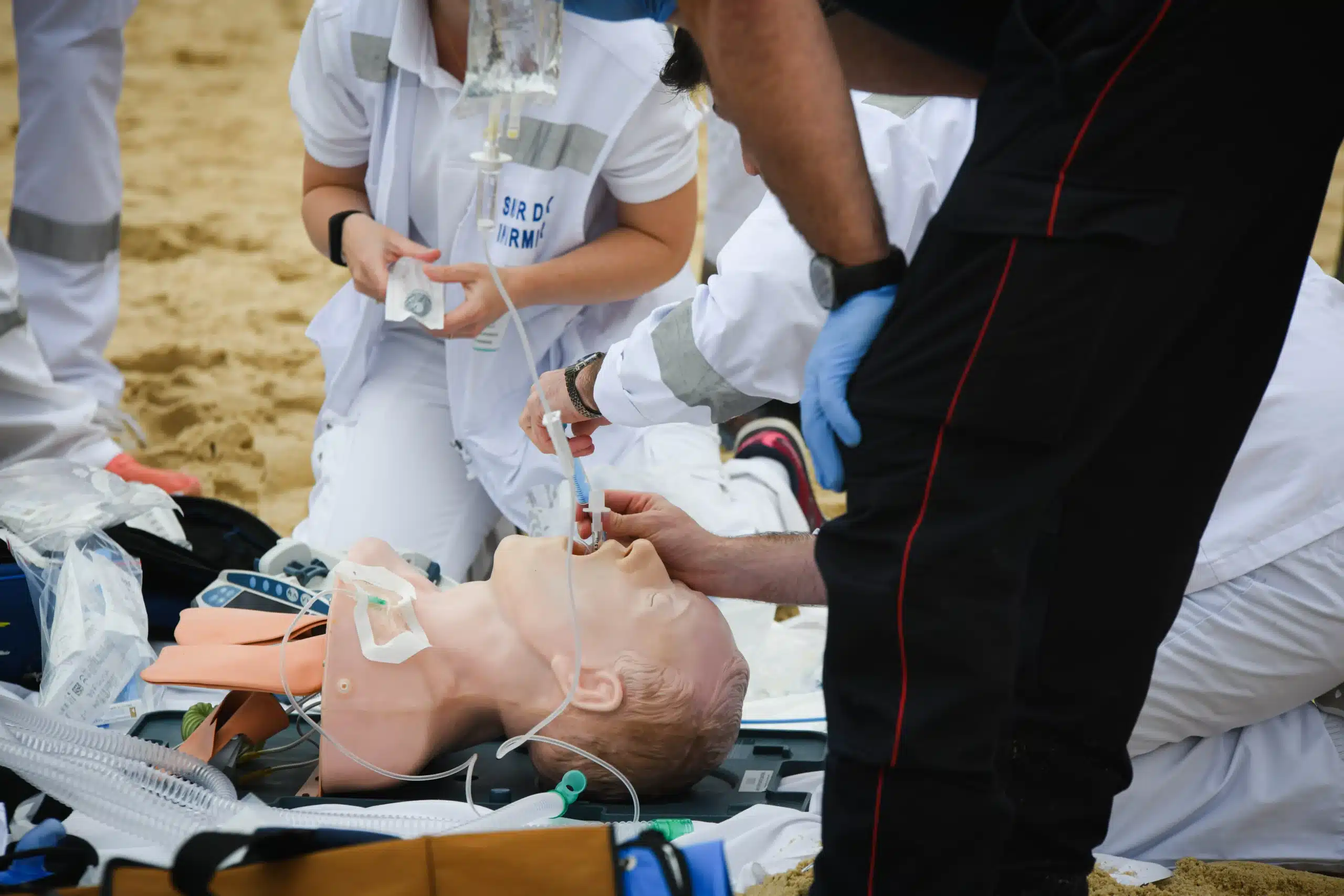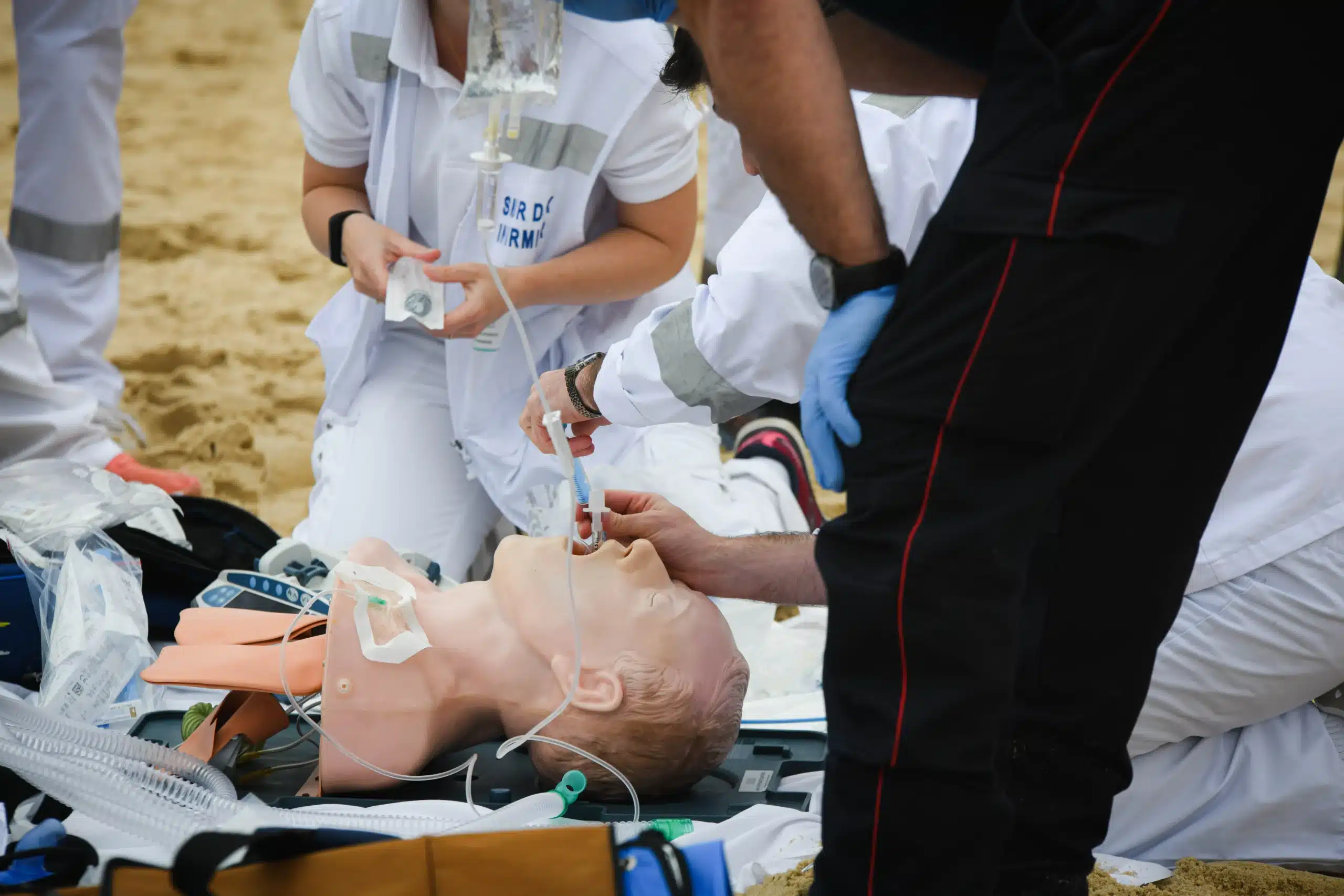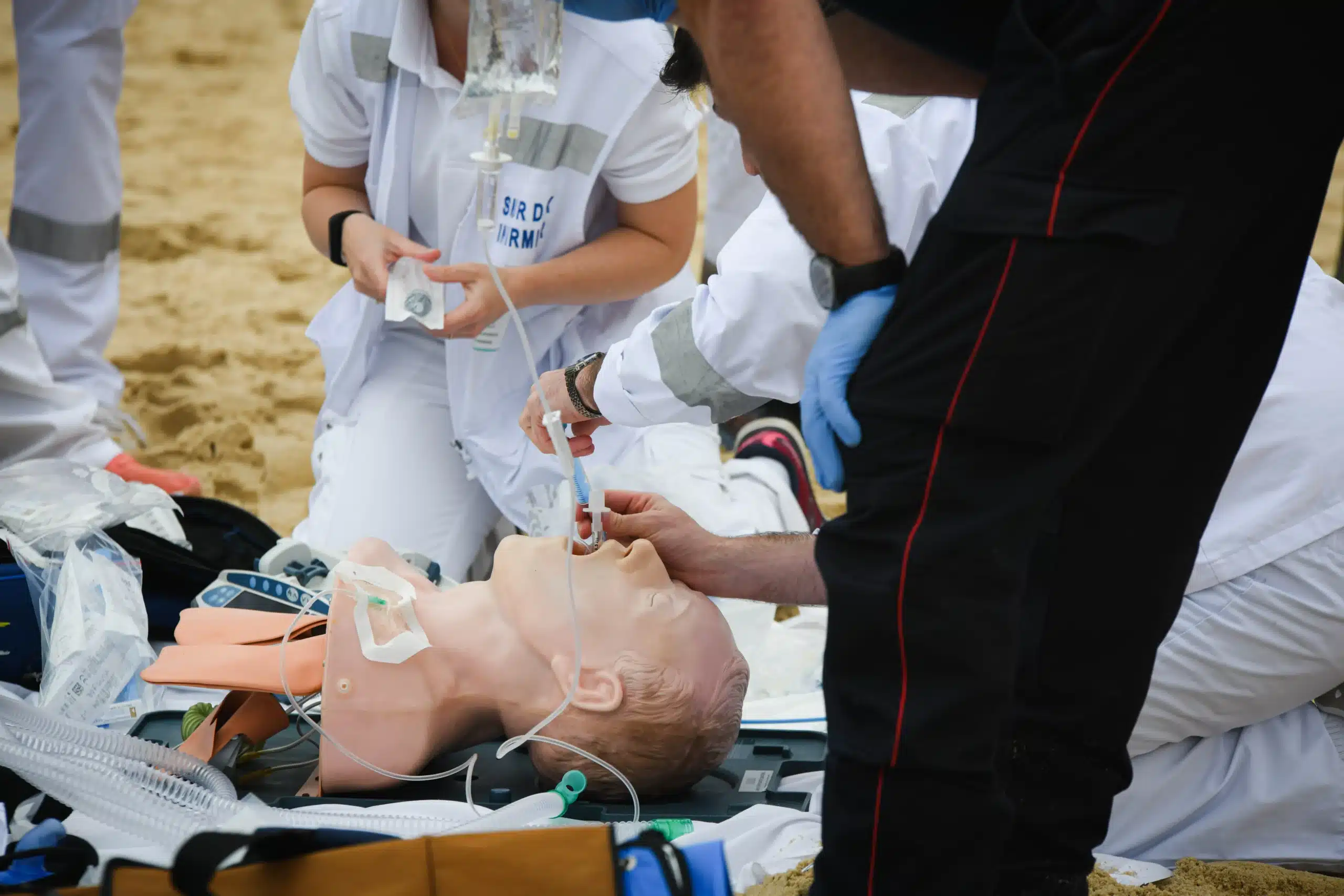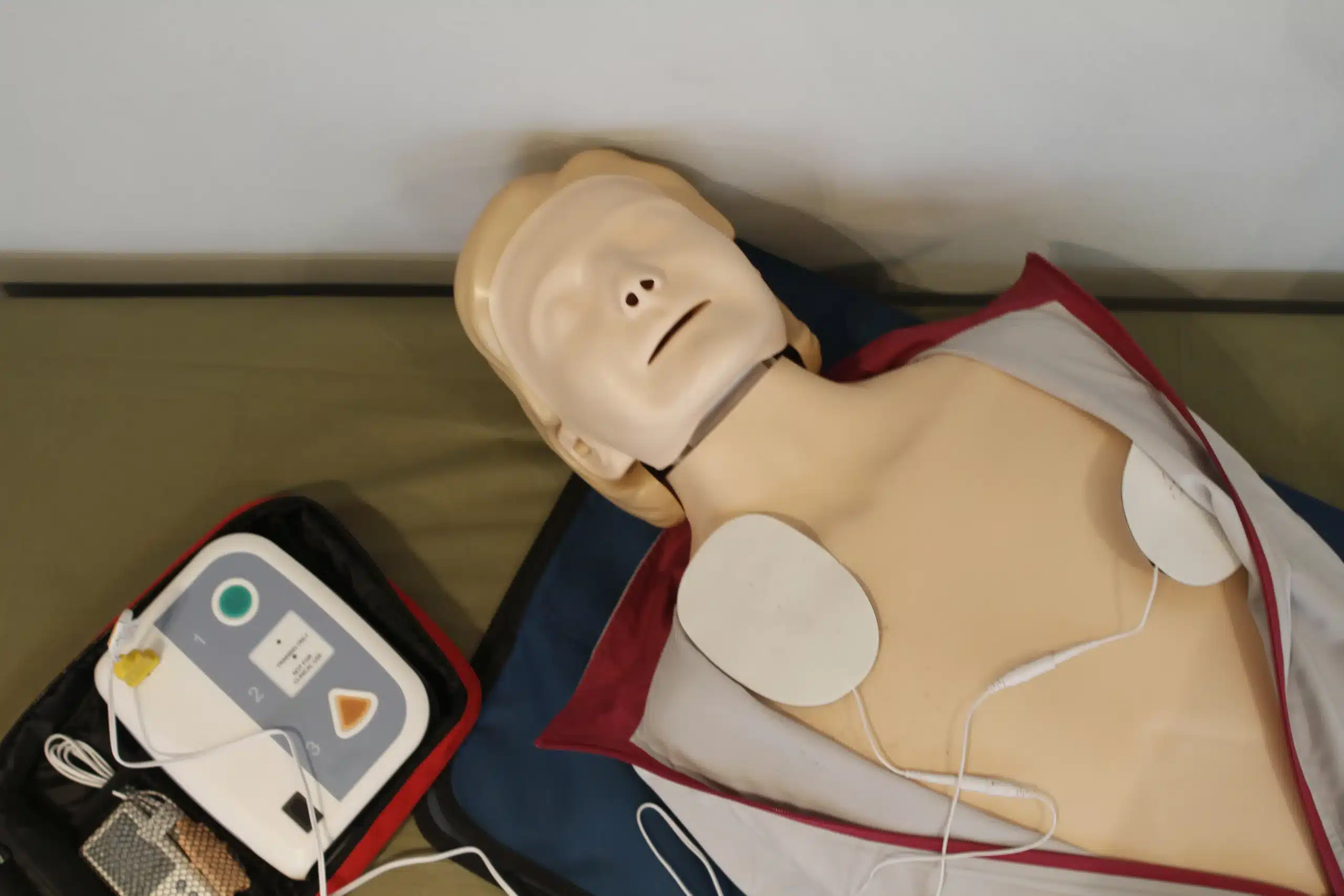Working with children is incredibly rewarding, but it also comes with a significant responsibility: ensuring their safety. In emergencies, seconds can matter. CPR certification courses for childcare providers in Pleasanton provide the essential skills to respond quickly and effectively, potentially saving a child’s life. This article guides you through the importance of CPR certification, the top courses available in Pleasanton, and the key skills you’ll gain. We’ll also discuss how this training enhances your professional credibility and competitiveness in the job market. Whether you’re a seasoned caregiver or just starting, this information will empower you to create a safer and healthier environment for the children you care for.
Key Takeaways
- CPR certification is a must-have for childcare providers: It equips you with the skills to handle emergencies, creates a safer environment for children, and builds trust with parents. Consider comprehensive training like the EMSA Child Care Health & Safety course for a well-rounded skill set.
- Finding the right CPR course is easy: Pleasanton offers a variety of options, including AHA-certified courses at Safety Training Seminars and specialized training from CPR Education. Consider factors like course content, schedule, and cost to find the best fit.
- Preparedness goes beyond getting certified: Regularly practice your skills, communicate your training to parents, and implement consistent safety practices in your childcare setting to create a truly safe environment.
Why CPR Certification Matters for Childcare Providers
As a childcare provider, you play a vital role in the lives of the children you care for. You’re responsible for their daily activities, safety, and well-being. That’s why CPR certification is so important—it equips you with the skills to respond effectively in emergencies. From minor injuries to life-threatening situations, CPR certification can make all the difference.
Key Skills and Knowledge Gained
CPR certification courses, like those offered by Safety Training Seminars, cover essential topics. You’ll learn how to perform CPR on infants and children, administer first aid for common childhood injuries, and recognize the signs of serious medical conditions. The EMSA Child Care Health & Safety course at Pleasanton CPR Classes also covers injury prevention, basic nutrition, emergency preparedness, safe medication administration, and infectious disease control. This comprehensive training gives you a well-rounded skill set to handle various situations and create a safer environment for the children in your care. It’s about more than responding to emergencies; it’s about preventing them.
Creating Safe Environments
By getting CPR certified, you’re taking a proactive step towards creating a safer environment for children. The training improves your emergency response capabilities and reduces the risk of accidents and illnesses. Knowing how to recognize and respond to choking, allergic reactions, and other emergencies can prevent minor incidents from becoming major crises. Plus, the combination of in-person and online options makes these courses accessible to more people, enhancing safety standards across the childcare field. Whether you’re a seasoned caregiver or just starting out, CPR certification is a valuable investment in the children you care for and your professional development. The American Heart Association CPR & First Aid course offers more information on creating a secure and healthy environment.
Top CPR Certification Courses in Pleasanton
Finding the right CPR certification course can feel overwhelming, but several excellent options in Pleasanton cater specifically to childcare providers. Here are a few top choices:
Safety Training Seminars
Safety Training Seminars offers a range of American Heart Association (AHA) certified courses, including CPR, First Aid, BLS (Basic Life Support), ACLS (Advanced Cardiovascular Life Support), and PALS (Pediatric Advanced Life Support). These certifications are widely recognized and often a job requirement in healthcare and childcare. The daily class schedule makes it easy for busy caregivers to find a convenient time. Learn more about their BLS, ACLS, PALS, CPR, and First Aid classes. Safety Training Seminars also offers a low price guarantee and group discounts, making high-quality training accessible.
EMSA Child Care Health & Safety
The EMSA Health, Safety, Nutrition, and Lead Poisoning course provides comprehensive training tailored to childcare providers. This eight-hour course covers essential topics like injury prevention, emergency preparedness, and infectious disease control. Offered both in person and via Zoom approximately six times a month, it’s a convenient way to gain valuable skills and knowledge. Participants receive their EMSA certification card the day after course completion. Explore the details of the EMSA Child Care Health & Safety course.
CPR Education
CPR Education offers engaging CPR and first-aid training certified by the American Heart Association (AHA). They cater to diverse groups, including healthcare providers, childcare professionals, and parents. This focus on an enjoyable learning experience helps participants absorb critical lifesaving skills. Visit the CPR Education website for more information on their Pleasanton classes.
Essential Skills in Childcare CPR Courses
As a childcare provider in Pleasanton, Dublin, or San Ramon, your CPR certification is more than just a requirement—it’s a vital skill that can save a child’s life. These courses equip you to handle emergencies effectively, creating a safe and healthy environment for the children under your care. Let’s look at the key skills you’ll gain.
Infant and Child CPR Techniques
Childcare providers need to be proficient in CPR for both infants and children. This includes recognizing the signs of cardiac arrest and respiratory distress, performing chest compressions and rescue breaths, and knowing the differences between the techniques for each age group. Pleasanton CPR classes, offered by Safety Training Seminars, cover these techniques thoroughly, preparing you to respond quickly and confidently. For details on our CPR and first-aid certification, visit our CPR and First-Aid Certification page. You can also find additional local certification options through CPR Education.
First Aid for Common Childhood Emergencies
CPR is essential, but childcare providers also encounter other emergencies that demand a swift response. Minor cuts and scrapes, allergic reactions, and choking incidents are just a few examples. Knowing how to administer basic first aid is critical. Our EMSA Child Care Health & Safety course covers these common situations, giving you the practical skills to manage them effectively.
Injury Prevention Strategies
A safe environment is the cornerstone of quality childcare. Understanding potential hazards and taking preventative measures can drastically reduce the risk of accidents. Our EMSA Child Care Health & Safety course covers injury prevention strategies, empowering you to identify and address risks to create a secure space for children to thrive.
Emergency Preparedness
Prevention is crucial, but so is being ready for unexpected emergencies. This means having emergency plans, understanding evacuation procedures, and knowing how to communicate effectively with emergency services. The EMSA training strengthens your emergency preparedness, equipping you to handle difficult situations calmly and efficiently.
Infectious Disease Control
Childcare settings can be breeding grounds for infectious diseases. Knowing proper hygiene practices, infection control protocols, and how to spot early signs of illness is vital for protecting children’s health. Our EMSA Child Care Health & Safety course addresses these essential aspects of infectious disease control, helping you maintain a healthy environment and minimize the risk of outbreaks.
Course Formats and Schedules
Finding a CPR class that fits your schedule is easier than you think. Let’s explore the different options available for CPR certification in Pleasanton. We’ll cover the benefits of in-person training, the flexibility of online learning, and how often these courses are offered.
Advantages of In-Person Training
In-person training offers a structured learning environment ideal for hands-on skills practice. At Safety Training Seminars, in-person CPR classes are held at our Pleasanton training center. This dedicated space allows for focused interaction with your instructor and classmates. You’ll benefit from direct feedback on your technique and have the opportunity to ask questions in real-time. Plus, you’ll receive your EMSA certification card the day after completing the course, so you’re ready to put your skills to use right away.
Flexibility of Online Certification
We understand that busy schedules can make it tough to commit to a traditional class. That’s why we offer blended learning options, combining online coursework with essential in-person practice. You can complete the theoretical components at your own pace, then attend a hands-on skills session to demonstrate your proficiency. This flexible approach accommodates various schedules and learning preferences.
Course Frequency
We offer a variety of course times to meet your needs. Online courses run approximately six times per month via Zoom, and in-person sessions are also readily available. Most courses last between two and four hours, making it manageable to fit this important training into your busy schedule. Check our website for the latest schedule and find a time that works best for you.
Costs and Financial Considerations
CPR certification is an investment in safety and peace of mind, so understanding the associated costs is important. Knowing typical price ranges and available financial assistance can make planning easier.
Average Course Prices
Course prices vary depending on the type of certification, the course length, and the training provider. For example, the eight-hour EMSA Health, Safety, Nutrition, and Lead Poisoning course, covering essential health and safety topics for childcare providers (including certification), costs $100. Learn more about this comprehensive EMSA course. Many standard CPR courses run between two and four hours, making them relatively easy to fit into a busy schedule. Explore the available CPR and First-Aid certification courses in Pleasanton for specifics.
Group Discounts and Assistance
If you’re training a team of childcare providers or want to reduce costs, explore group discounts. Many CPR training providers offer reduced rates for group bookings. Some providers, like CPR Education, offer on-site training, bringing the class directly to your childcare facility or home. This can save you valuable time and travel expenses. Pleasanton CPR Classes also has a low price guarantee, ensuring you’re getting affordable training in Alameda County. Contact them to discuss group discount options and tailor a training program to your needs.
Certification Process and Requirements
This section outlines the steps to obtain and maintain your CPR certification in Pleasanton, specifically for childcare providers.
Steps to Obtain CPR Certification
Childcare providers in Pleasanton can obtain CPR and health and safety training through the EMSA Childcare Health & Safety Certification course. This eight-hour program covers essential topics like health, safety, nutrition, and lead poisoning prevention, giving you the skills to create a safe environment for children. The course costs $100, with in-person and Zoom options available roughly six times per month. You’ll receive your EMSA certification card the day after you finish the course.
While the EMSA certification is valuable for childcare providers, most employers also require a CPR certification designed for healthcare providers. This usually includes BLS/CPR, AED, and First Aid training. Pleasanton CPR Classes offers these certifications, allowing you to meet all requirements. Check with your employer or potential employers to confirm their specific needs.
Renewal and Maintenance
Keeping your certifications current is crucial. American Heart Association (AHA) certifications are valid for two years. To comply with employer requirements and maintain your skills, renew your certification before it expires. This ensures you’re always prepared for emergencies. Check with your certifying organization for their renewal process. Staying current with the latest guidelines shows your commitment to high-quality care.
Career Impact of CPR Certification
As a childcare provider, your top priority is the safety and well-being of the children in your care. Earning your CPR certification demonstrates that commitment and provides a real career advantage. Let’s explore how.
Enhanced Professional Credibility
Parents want to know their children are in capable hands. CPR certification instantly boosts your credibility, showing you’ve taken the extra step to prepare for emergencies. It signals professionalism and a dedication to safety, building trust with families and giving them peace of mind. This added assurance can be invaluable in a field where trust is paramount. For additional resources on child safety and health, visit our page on EMSA Child Care Health & Safety.
Job Market Competitiveness
In a competitive job market, CPR certification can set you apart. Many childcare positions require or prefer candidates with these credentials. Adding an American Heart Association (AHA) certification to your resume shows potential employers you’re prepared for anything. It makes you a stronger candidate and can open doors to more opportunities. Browse our selection of AHA certification courses to find one that fits your needs.
Improved Emergency Response
CPR training equips you with the skills and confidence to respond effectively in a crisis. You’ll learn how to assess situations, perform CPR on infants and children, and administer basic first aid. This knowledge not only improves your emergency response capabilities but also helps create a safer environment overall. Being prepared can make all the difference in protecting the children you care for. We offer a low price guarantee on all our courses, making these essential skills accessible to everyone.
Choosing the Right CPR Course
As a childcare provider in Pleasanton, Dublin, or San Ramon, your CPR certification is more than just a credential—it’s a vital tool for ensuring the safety and well-being of the children you care for. Choosing the right course is a crucial first step.
Factors to Consider
Several factors play a role in selecting the best CPR course for your needs. First, consider your current experience. Are you a beginner, or have you taken CPR courses before? CPR and First Aid certification is a great starting point for those new to emergency response. If you’re a healthcare provider, BLS certification (Basic Life Support) is likely required. Advanced medical professionals may need ACLS (Advanced Cardiovascular Life Support). Those working with children should consider PALS (Pediatric Advanced Life Support).
Your workplace requirements also matter. Some childcare centers require specific certifications, so check with your employer or licensing agency. Finally, consider the course format and schedule. Do you prefer in-person instruction or the flexibility of online learning? Think about what best fits your work schedule and learning style. Completing a CPR course equips caregivers with the skills to create a safe and healthy environment, improving emergency response and reducing the risk of accidents and illnesses.
Comparing Pleasanton Courses
Pleasanton offers several reputable CPR training options. Safety Training Seminars, a woman-owned AHA Training Center, provides a range of AHA-certified courses including CPR, First Aid, BLS, ACLS, and PALS. They offer a low price guarantee and classes are available daily, with options for both in-person and online learning. CPR Education also offers AHA-certified CPR and first-aid training in Pleasanton. Take the time to compare course content, schedules, and pricing to find the best fit.
Preparing for Your CPR Course
So, you’re ready to become CPR certified? Great! Knowing what to expect can help you feel confident and prepared. This section covers everything from choosing the right course to understanding the training process.
What to Expect During Training
Pleasanton CPR Classes wants to make sure you have a smooth experience. For example, the 8-hour EMSA Child Care Health & Safety course covers essential topics like injury prevention, nutrition guidelines for children, emergency preparedness, safe medication administration, and infectious disease control. This comprehensive course costs $100 and includes your certification. Classes are conveniently offered both in person and via Zoom. You can find in-person sessions at 4725 First Street, Suite 225, Pleasanton, CA 94566, and online courses are available approximately six times a month. You’ll receive your official EMSA certification card the day after completing the course.
Tips for Successful Completion
A little prep work goes a long way. First, consider which course best suits your needs and experience level. Are you a beginner looking for a basic CPR/First Aid certification? Are you a healthcare provider needing BLS certification? Or are you an advanced medical professional requiring ACLS or PALS certification? Pleasanton CPR Classes offers a range of courses. Check the Safety Training Seminars website for course schedules and registration information. Look for American Heart Association (AHA)-certified courses like those offered by Pleasanton CPR Classes to ensure you’re receiving high-quality, recognized training.
Implementing CPR Skills in Childcare
As a childcare provider, having CPR certification isn’t just a credential—it’s a vital skill set that can make all the difference in an emergency. Knowing how to implement these skills effectively within your childcare setting is crucial for maintaining a safe and healthy environment for the children in your care.
Educating Parents
Open communication with parents builds trust and ensures everyone is on the same page when it comes to child safety. Inform parents about your CPR certification and explain what it means for their children’s well-being. Parents should inquire about whether their child’s childcare provider has completed this training, as it demonstrates a commitment to safety and preparedness. This transparency reassures parents and reinforces the importance of CPR training within the childcare community. Consider sharing resources or information about CPR courses available to parents, further emphasizing the value of these life-saving skills.
Ongoing Safety Practices
CPR certification is not a one-time achievement; it requires ongoing practice and reinforcement to maintain proficiency. Regularly review and practice your CPR skills, ensuring you’re comfortable and confident in your ability to respond effectively in an emergency. Creating a safe environment involves more than just having the skills; it’s about actively applying them. Implement regular safety drills and discussions into your childcare routine. This proactive approach reinforces your skills and prepares the children for potential emergencies, fostering a sense of calm and preparedness. Remember, learning CPR and first aid is important for everyone, not just healthcare professionals. These skills empower you to respond effectively and potentially save a life.
Related Articles
- CPR & First-Aid Certification Courses in Pleasanton – Pleasanton CPR Classes
- CPR Courses in Dublin: Your Complete Guide – Pleasanton CPR Classes
- EMSA Certification Near Me: A Guide for California Child Care Providers – Pleasanton CPR Classes
- Pediatric CPR & First-Aid Classes in San Ramon – Pleasanton CPR Classes
- Why CPR is Critical in Healthcare and Life-saving Emergencies
Frequently Asked Questions
Q: Why is CPR certification especially important for childcare providers? A: Because childcare providers are entrusted with the safety and well-being of children, having CPR certification allows them to respond quickly and effectively to medical emergencies, potentially saving a child’s life. It also demonstrates a commitment to safety, reassuring parents and enhancing professional credibility.
Q: What key skills will I learn in a CPR course designed for childcare providers? A: You’ll learn infant and child CPR techniques, including how to recognize signs of cardiac arrest and administer rescue breaths and chest compressions. Courses also cover first aid for common childhood injuries like cuts, burns, and allergic reactions, as well as injury prevention strategies and emergency preparedness. Some courses also include infectious disease control and basic nutrition.
Q: How do I choose the right CPR certification course in Pleasanton? A: Consider your experience level, workplace requirements, and preferred learning style. If you’re new to CPR, a basic CPR/First Aid course is a good starting point. Healthcare providers typically need BLS certification, while those working with children might consider PALS. Check with your employer for specific requirements. Also, think about whether you prefer in-person classes or the flexibility of online or blended learning options.
Q: How much do CPR certification courses typically cost, and is financial assistance available? A: Costs vary depending on the course type, length, and provider. Many basic CPR courses are relatively affordable, and some providers offer group discounts or on-site training to reduce costs. Check with individual training centers like Safety Training Seminars for their pricing and any available discounts.
Q: How can I maintain my CPR certification after completing the course? A: Most CPR certifications, such as those from the American Heart Association, are valid for two years. You’ll need to renew your certification before it expires to maintain your skills and meet employer requirements. Contact your certifying organization for specific renewal procedures. Regularly practicing your skills is also essential for staying prepared.
